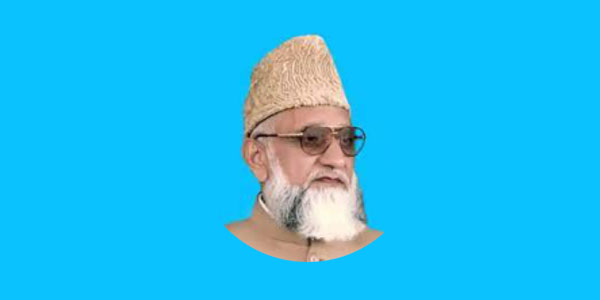Hameed Shaheen Alvi
ON July 16th 2022 the 7th anniversary of veteran Kashmiri leader Sardar Mohammad Abdul Qayyum Khan, the practical field founder of Kashmir freedom movement, is being observed by the people of Jammu and Kashmir within and outside of the state.
He earned the title of Mujahid-e-Awwal of Kashmir movement in 1949 when the then government of Azad Jammu and Kashmir issued a notification of acknowledgement. Copy of the gazette notification was shown to me by the Kashmiri historian Dr Sarwar Abbasi, who in later years had retired as Vice-Chancellor of AJK University. Sardar Abdul Qayyum Khan was an icon of ideology of Jammu and Kashmir’s accession to Pakistan, a course chartered out by All Jammu and Kashmir Muslim Conference on July 19, 1947 which is still an anchor sheet of political advancement pursued by this premier platform of Kashmiris founded back in the turbulent times of 1932 when Dogra autocratic might was roaring in Kashmir at its height unchallengeable.
Elsewhere Nature was rearing the practical challenger – Sardar Mohammad Abdul Qayyum Khan then a youth of 22 years who rises to the occasion treading the sharper edges of field war for liberation of Jammu and Kashmir. On August 23, 1947 this young warrior rallied the first batch of pro-freedom fighters at the historic height of Neela Butt atop his village home Ghaziabad. Since then Neela Butt top is treated as the starting point of the practical phase of Kashmir freedom movement.
From Daily Statesman of Calcutta to historians Joseph Korbel to Lord Birdwood to Prof Alastair Lamb confirm this fact of history in their respective books; Korbel was an active member of UNCIP in Kashmir. Dogra regime had set Rs. Five lakhs as head money of young rebel Sardar Qayyum Khan. But he least wavered in his mission. Lasting for 15 continuous months the Kashmir fighting halted with the promulgation of UN enforced ceasefire on January 1st, 1949. Guns had gone silent; but Sardar Qayyun Khan did not rest; in his peace time he formed a political apparatus – Azad Kashmir Political Party to advance the cause of Kashmir via the platform of the masses.
In 1951 he joined All Jammu and Kashmir Muslim Conference under the leadership of Chowdhary Ghulam Abbas, founding General Secretary of his party. To the stunning success of Sardar Sahib goes the credit that for fourteen times he was elected as president of the party, three times president of Azad Kashmir government in 1956, 1971 and 1985, and one time prime minister, 1991-1996.
He sensitized the issue of Kashmir at regional and international levels reaffirming the UN Kashmir dispute solution formula; he was ardent struggler for opening all traditional access roads and routes between the two parts of divided Jammu and Kashmir state; in 1973 for the first time as Kashmiri ruling politician he wrote to the Srinagar chief minister to visit Azad Kashmir; the invitation was an ideological initiative for facilitation of opening of routes for intra-state travels by the people on both sides; till 1959 traditional routes were open and Kashmiris from both sides could travel on a district magistrate issued identity permit.
In 1975 his resolution for inter and intra-state travels facilitation to Kashmiris was unanimously approved by the Rabita Al Alam Al Islami/World Muslim League in its 3-day session at Makkah. Sardar Sahib, keeping the centrality of Kashmir dispute actively progressive, devoted his guiding statesmanship for the uplift of the downtrodden people of Azad Kashmir when in 1971 he opened virtually a floodgate of educational and economic development for Azad region, established the Development Commissioner office, opening inlets for international aid fora like Asian Development Bank, World Food Programme for the first time in AJK; alongside dozens of male/female colleges, hundreds of primary, middle and high schools, he started a symbolic initiative for the AJK University appointing Sahibzada Hassan Shah, a famous educationist, as its first registrar in 1971 who later served as Peshawar University registrar.
On the constitutional side it was under his activation that right of writ was accorded to the people Azad Kashmir for the first time. For ideological intellectual input AJK govt. started a well organized daily Dars-e-Quran for civil employees of the state at the start of their official working hours. In those days of peace-surety the gates of his Presidency remained open for general public till late night to meet, talk, discuss, monitor, assess the public demands of the visitors.
This public gesture gave rise to his leadership popularity. In the context of Kashmir’s accession to Pakistan movement he successfully maintained good working relationship with the leaderships of Pakistan – from President General Mohammad Ayyub Khan to Prime Minister Z.A. Bhutto (except a short spell of strain) to President General Ziaul Haq to Prime Minister Mian Nawaz Sharif to President General Pervez Musharraf. He also remained Chairman of the Kashmir Committee of Govt of Pakistan.










